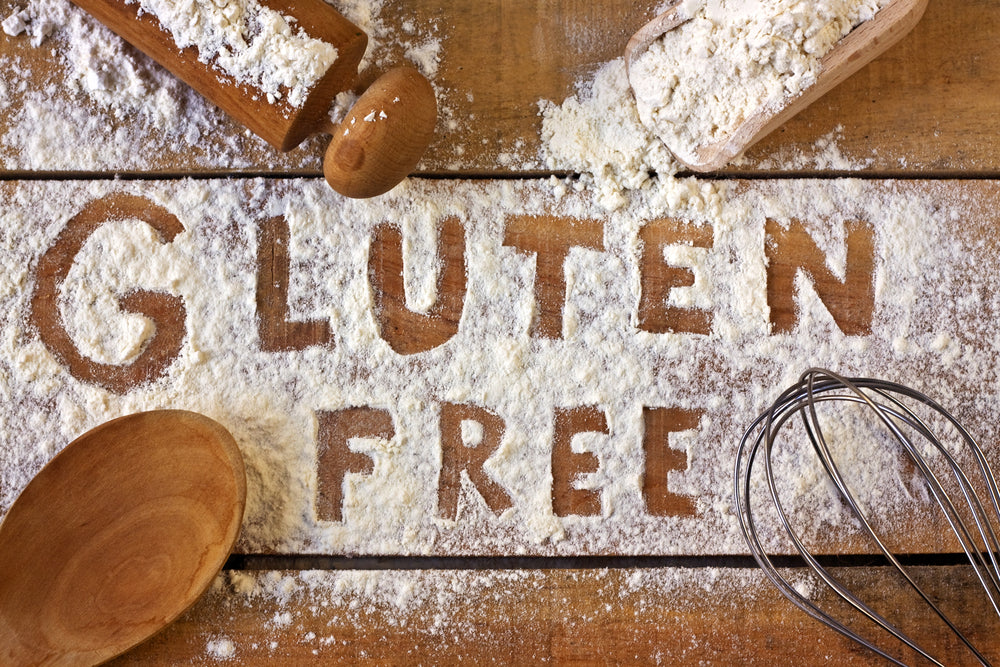GLUTEN-FREE DIET IN RAMADAN
With the arrival of Ramadan, it is very important to have a healthy and balanced diet and to support the body with the nutrients it needs. Gluten-free diet is an important issue for some due to health needs or preferences. So, how can a gluten-free diet be achieved during Ramadan?
What is a Gluten-Free Diet?
Gluten is a protein found in wheat, barley, rye, and some other grains. A gluten-free diet is a diet that includes foods that do not contain gluten. This may be necessary for people with gluten intolerance, such as celiac disease, or it may be a choice for some people to relieve digestive discomfort or maintain a healthy lifestyle.
The Importance of a Gluten-Free Diet During Ramadan
These benefits of a gluten-free diet during Ramadan can be an important source of motivation for those with celiac disease or gluten intolerance. In order to create a healthy and balanced diet, it is important to evaluate the benefits of a gluten-free diet.
A gluten-free diet is very important for those who have digestive problems such as celiac disease or gluten intolerance. A gluten-free diet during Ramadan can help ease the digestive system and reduce discomfort.
A gluten-free diet can help some people maintain more balanced energy levels. Gluten consumption can cause weakness and fatigue in people with gluten intolerance. Therefore, a gluten-free diet during Ramadan can be important for maintaining energy levels. Gluten consumption can cause skin problems in some people. In individuals with gluten intolerance, gluten consumption can increase acne, eczema and other skin problems. A gluten-free diet during Ramadan can help improve skin health and reduce skin problems.
A gluten-free diet generally reduces the consumption of processed foods and fast food options. A gluten-free diet during Ramadan encourages the choice of healthier and more natural foods. This ensures that you get the nutrients your body needs.
In individuals with gluten intolerance, gluten consumption can cause an increase in appetite. A gluten-free diet during Ramadan can help control appetite and encourage proper nutrition.
Gluten-free Diet Tips During Ramadan
*Use gluten-free alternatives: Prepare your meals with gluten-free flours (rice flour, coconut flour, almond flour, etc.), gluten-free bread and pasta, etc. These can replace traditional non-gluten-free foods.
*Study labels carefully: Processed foods can contain gluten, so read labels carefully when shopping and preparing your meals. Check the list of ingredients that contain gluten and choose reputable brands.
*Prepare a home-cooked meal: Homemade meals give you more control over your gluten-free diet. By preparing your own meals, you know exactly what the ingredients are and can ensure they are gluten-free.
*Drink plenty of fluids: It is important to stay well hydrated while fasting. Drinking plenty of water keeps the body hydrated and maintains energy levels. Freshly squeezed fruit juices and fresh fruit smoothies are also good options.
* Eat a balanced diet: A gluten-free diet requires consuming a balanced and varied diet. Prepare a diet plan rich in protein, carbohydrates, fat, fiber, vitamins and minerals.
Gluten-free diet during Ramadan requires a healthy and conscious approach. Choosing natural and whole foods, using gluten-free alternatives, carefully examining labels, preparing homemade meals, drinking plenty of fluids and eating a balanced diet can make your gluten-free diet experience successful and enjoyable.
Since everyone’s health and nutritional needs are different, it’s important to consult a healthcare professional before switching to a gluten-free diet. This way, you can create a healthy, balanced diet during Ramadan and best support your body while fasting.
Delicious alternatives for gluten-free sahur and iftar
Eating healthy and delicious food during Ramadan will help you maintain your energy and get the nutrients you need throughout the day. Planning iftar and sahur meals can sometimes be challenging, especially for those on a gluten-free diet. However, with a menu full of gluten-free recipes, you can have an enjoyable and healthy Ramadan. Here are delicious alternatives full of gluten-free iftar and sahur recipes:
Gluten-free Ramadan Pita
Materials:
2 cups gluten-free flour of your choice
1 pack of instant yeast
1 teaspoon of sugar
1 teaspoon salt
1 glass of warm water
2 tablespoons of olive oil
Sesame or black cumin seeds for topping (optional)
How to make:
*Mix yeast, sugar and warm water in a bowl. Wait for the yeast to foam.
*In another bowl, combine gluten-free flour mix and salt.
*Add the yeast mixture to the flour mixture and knead. Make sure the dough you obtain is soft and elastic.
*Cover the dough and let it ferment for about 1 hour.
*Knead the fermented dough again and shape it into pita bread.
*Dream with olive oil and sprinkle with sesame or black cumin seeds if desired.
*Bake in a preheated oven at 200°C until golden brown.
Gluten-Free Quinoa Salad
Materials:
1 cup cooked quinoa
1/2 cucumber, diced
1/2 red pepper, chopped
1/2 carrot, grated
1/4 red onion, chopped
Fresh mint or parsley
Olive oil, lemon juice, salt and pepper (for the sauce)
How to make:
Mix the cooked quinoa and all the chopped vegetables in a bowl.
Add fresh mint or parsley on top.
Pour the dressing prepared with olive oil, lemon juice, salt and pepper over the salad.
Mix the mixture well and let it rest in a cool place.
Serve it as a fresh and light alternative for your iftar or sahur meals.
With gluten-free iftar and sahur recipes, you can protect your health while enjoying the month of Ramadan. These recipes will help those on a gluten-free diet to have an enjoyable Ramadan by offering delicious alternatives. Enjoy!

